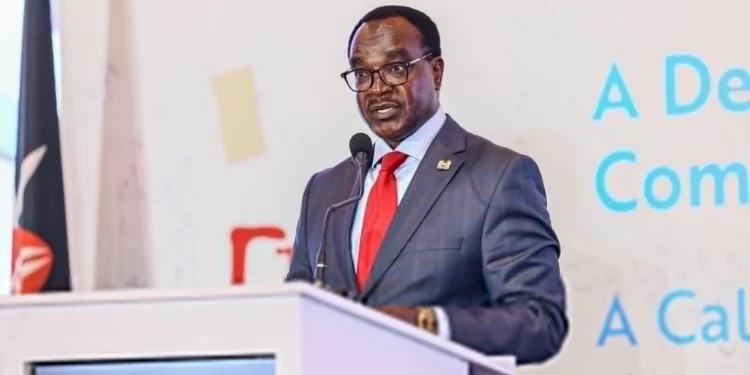By Victor Ochieng’
vochieng.90@gmail.com.
From the time 2021 KCSE results were out, I have been a busy bee on phone. Form Four Leavers and parents who know that I am a career coach and counsellor have been sending me avalanche of messages orbiting around vocational skills. They have been making enquiries about best careers and courses to pursue. Quoth they, some, have just been sending the grades they scored, then they append the question: Which career is best suited for such a person?
Of course, career choice is a peregrination. To augment this argument on this, life is a journey, not a destination. Career is not something a child can choose only after sitting for the exam. Life skills such as self-awareness, decision-making, critical and creative thinking, take centre stage. A careful child should take career choices seriously right from Form One. Ipsos facto, it is why a career is defined as a job or a profession that will enable someone to make progress and access success in life. This sheds bright light on why people who are already in the world of work talk about career progression and promotion.
In retrospect, secondary schools play an integral role when it comes to career choices. The fountains of aperitif of knowledge, ascend to this royal role when, they form formidable departments of Careers Counselling. The school arrowheads should stock the school library with good books on careers, like: the Essential Career Guide by the Kenya Literature Bureau (KLB) and Discover Your Career Workbook by Story Moja. The department of careers should organise sporadic career talks and fairs. Career experts should be invited periodically to equip students with definite knowledge pertaining professions. The school administration should ensure that the school has clubs, societies and movements, that arouses career-consciousness in the nascent intellect of students. Once in a while, students should be exposed to the world work through academic trips, tours and excursions. Job-shadowing also play pivotal role: It is where students are exposed to the professional world. For instance, those who dream to be lawyers, can visit law firms. Or lawyers can be invited to expose them to the legal profession through true testimonies and self-disclosure.
In addition, in most schools, Form Twos are given good guidance before they select subjects. It is what we did this week at the Senior Chief Koinange Girls, in Kiambaa, Kiambu County. Students must be apprised that selection of subjects is not an exercise that should be toyed with per se. Choosing subjects based on whims and whiffs of peer pressure can blight their bright futures. Subjects selected will have a great impact on their future careers. For instance, any student who dreams of becoming a doctor must select Biology as Science. Just as the one who yearns to wrestle with any form of Engineering, must select Physics as a Science. Again, Physics has plenty of career opportunities. In some Science-based courses, Physics can be used instead of Mathematics when arriving at the cluster points. Every university or Technical and Vocational Education and Training (TVET) institution sets the cluster of four (4) subjects that are considered to be the most relevant for the course. It is imperative for a candidate to be conscious of the specific subjects required for the cluster points. Each subject has a maximum of 12 points. Going by the four subjects, the maximum cluster point is therefore 48 points. If a student scores the following grades, and wants to apply for Medicine at the University of Nairobi, this is how they would go about it: English B+, Kiswahili A, Math A –, Chemistry A –, Biology B+, Physics A, Business Studies A and CRE A. For this candidate to apply for a course like Medicine, s/he needs a cluster of Kiswahili, Physics, Biology and Chemistry. English will not be used because this student performed better in Kiswahili. Similarly, Mathematics will not be used because the student performed better in Physics.
Moreover, the school should help the candidate class to choose varsity and college courses with picture-perfect precision and clock-like accuracy. Kenya Universities and Colleges Central Placement Service (KUCCPS) portal is opened at some point. Candidates should apply for courses while at school. Principals of schools were expected to submit candidates’ course choices in the KUCCPS portal. This means, students whose schools failed to submit course applications will have to make the applications by themselves, once the service resumes the applications. There is room for revision for courses when the portal is opened again. Candidates who attain the minimum university entry requirement of C+ (plus) and above in KCSE, secure places both in public and private universities under the government sponsorship programme. They become beneficiaries of Higher Education Loans Board (HELB). Candidates who garner grades ranging from E to C (plain), pursue artisan and craft courses in Technical and Vocational Education and Training (TVET) institutions. Only those who apply for placements in various universities and TVET institutions are considered in the placement and government sponsorships. By and large, students have 18 choices open for them when making applications for courses: 6 for degree, 4 for diploma, 4 for craft certificate option, and 4 for artisan certificate option. For degrees, candidates are expected to list their preferred 4 courses in the order of priority.
The writer rolls out career talks in schools.






